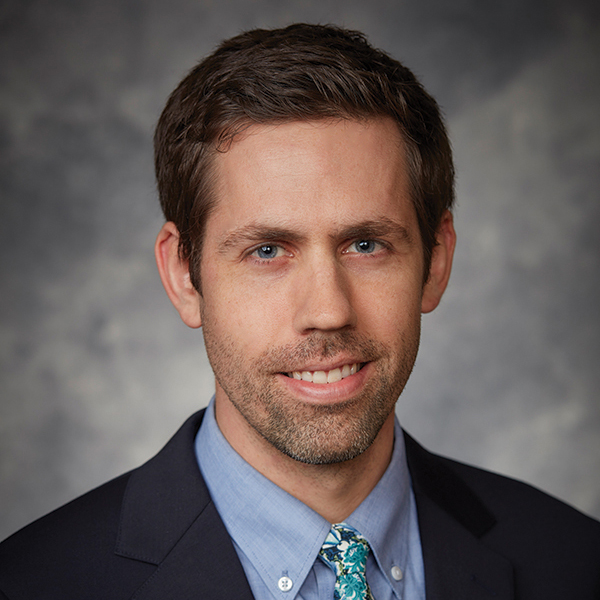Dr. Seth Hays
- Associate Professor of Bioengineering
- Fellow, Eugene McDermott Distinguished Professor

The McDermott Professorships were established in August 2017, funded by an anonymous gift, with the goal of providing early career support and recognition to faculty members who have established extraordinary records of research productivity, teaching excellence and university service, and who show promise of being leaders of the UT Dallas faculty in the future.
“It’s a great honor to be recognized with the Eugene McDermott Endowed Professorship and a thrilling time to be at UT Dallas. I’m grateful to work with brilliant, engaged students and colleagues every day as we strive to merge engineering and neuroscience to develop real solutions for patients.”
Dr. Seth Hays’ work combines neuroscience and biomedical engineering to develop therapies for neurological disorders, primarily using vagus nerve stimulation to accelerate brain reorganization.
His research continues to delve into identifying the neural mechanisms activated by vagus nerve stimulation to enhance neuroplasticity in victims of stroke, spinal cord and nerve damage, and traumatic brain injuries. Primary among the goals of these studies are the recovery of motor function and the improvement of cognitive abilities.
“The brain has a remarkable capacity to change in response to learning and disease,” Hays said. “My research focuses on developing strategies to enhance beneficial changes and improve the lives of those suffering from neurological disease. The collaborative, multidisciplinary research environment at UT Dallas is perfectly suited to rapidly develop and translate these therapies to clinical practice.” In 2015, the American Heart Association presented Hays with the Robert G. Siekert New Investigator in Stroke Award. He is a member of the Society for Neuroscience and the American Heart Association.
Hays has published more than 30 peer-reviewed articles in international journals, including Stroke, Nature Neuroscience, eLife, and the Journal of Neuroscience.
Hays earned a bachelor’s degree in biomedical engineering from UT-Austin in 2007. In 2012, he completed a PhD in neuroscience at The University of Texas Southwestern Medical Center under the direction of Dr. Kimberly Huber and Dr. Jay Gibson.